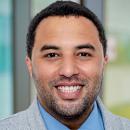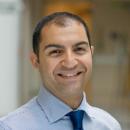Situated in the beautiful Pacific Northwest, we are an academic pediatric gastroenterology group with a strong international reputation for high quality research, education and patient care. As the only academic pediatric gastroenterology group in the region, we serve a broad geographic area with a diverse and large patient population with chronic gastrointestinal and liver diseases.
Our group has clinical specialty programs in inflammatory bowel disease, motility disorders, hepatology, liver transplantation, and one of the few intestinal rehabilitation and transplantation programs in the country. Seattle Children’s, the University of Washington and Fred Hutchinson Cancer Research Center combine to lead the nation in National Institutes of Health research funding, making Seattle’s research opportunities among the best in the world.
Message to Prospective Residents from Dr. Walker
Fellowships with Gastroenterology

First Year
During the first year, our fellows have an intensive exposure to inpatient and outpatient gastroenterology, hepatology and nutrition. Time is spent on the inpatient gastroenterology service, consult service, and the liver and intestinal failure service which includes time with the liver and intestinal transplant teams. They develop procedural skills and are exposed to a wide variety of acute and chronic gastrointestinal diseases.. In addition to inpatient service time, first year fellows spend time in our subspecialty clinics (inflammatory bowel disease, hepatology, motility, celiac, intestinal rehabilitation, and liver/intestinal transplant clinic). Interested fellows can also gain exposure to therapeutic and specialized endoscopy procedures such as ERCP and motility procedures. There are also three weeks of research during the first year. In partnership with our colleagues in gastroenterology at the University of Washington, our first year fellows have the opportunity to spend three weeks teaching second year medical students in lectures and small group discussions.
Second and Third Year
In their second and third years, fellows focus on an academic research pursuit (basic science, translational, or clinical), allowing them to prepare a unique research project and see it through to fruition. Fellows are encouraged and supported in presenting their research at national and international meetings. We work with fellows to determine their career goals and focus their training to provide the skills necessary to become independent academic pediatric gastroenterologists. Each fellows has a scholarly oversite committee composed of at least two members from within the division and one external member to help give feedback and provide guidance during this process.
Fellowship Research Opportunities
The clinical research pathway can be designed for fellows who wish to pursue a career as an academic clinician or clinician educator. Fellows on this pathway will conduct a clinical research project and have the opportunity to focus their training in various aspects of pediatric gastroenterology such as inflammatory bowel disease, hepatology, nutrition, motility, intestinal rehabilitation, and cystic fibrosis. There are many funding opportunities that help align a research project with a career interest, such as CF Clinical Research Grants, Health Equity fellowships, a global health track, master degree programs, to name a few.
If a fellow is interested in pursuing a career as a physician-scientist, a different pathway can be identified. In conjunction with the University of Washington, training is available through an NIH T32 training grant to support our fellows in their basic science research with research mentorship and guidance from a scholarly oversight committee. Read more about Seattle Children's UW Pediatrics GI Research (pdf).
Continuity Clinic
All fellows participate in a longitudinal, weekly, continuity clinic experience. Fellows are paired with two continuity clinic mentors, one who focuses on general gastroenterology and the other within a subspecialty. With guidance from their mentor, fellows are primarily responsible for the care of their patients.
Educational Opportunities
The comprehensive educational opportunities in our division focus on the intersection of clinical practice, research, and the critical evaluation of literature. Together these opportunities make up the Fellows’ Educational Series covering the pediatric gastroenterology board content in a three-year cycle. The following didactic sessions are included in the Fellows’ Educational Series: clinical case conference, journal club, research conference, pathology conference, radiology conference, morbidity and mortality conference, joint gastroenterology-surgery conference, University of Washington Frontiers Lecture Series, and team meetings (IBD, general gastroenterology, hepatology, intestinal rehabilitation).
Other Educational Opportunities
Fellows have the opportunity to participate in additional training through the University of Washington including an MPH in epidemiology, Graduate Certificate in Maternal and Child Health, Teaching Scholars Program, and a Health Services and Quality of Care Research Fellowship.
All pediatric gastroenterology fellowship interviews for Seattle Children's Hospital will be conducted virtually for the 2026-2027 interview season.
Prerequisites/post-medical school requirements
Fellows must have graduated from an accredited medical school and have completed a pediatric residency program at an accredited institution. The individual must be board eligible/certified in General Pediatrics.
Applications
We accept applications via ERAS (Fall Application Cycle) We ask for the ERAS Application, a current CV, a personal statement, 3+ LORs, a photo, and USMLE step scores to complete a file. Our application deadline is September 30th.
Additional Information
- UW Medical Center GME policies, guidelines and forms
- Seattle Children's Gastroenterology and Hepatology website
- Electronic Residency Application Service (ERAS)
- NMRP
Please contact the Program Coordinator if you have any further questions.
Timeline
- Registration begins August 21, 2026 for academic year 2026-2027
- Interview start and end dates (interviews will be held virtually): September- October, 2026
- Match date: December 4, 2026
- All applications must be submitted via Electronic Residency Application Service (ERAS).
“The UW School of Medicine is committed to building and sustaining a multicultural community that fosters equity, diversity and inclusion. Our objective is to create a community that encourages participation and connection, and that values each individual's unique contribution, regardless of socioeconomic status, race, ethnicity, language, nationality, sex, sexual orientation, gender identity and expression, spiritual practice, geography, mental and physical status and age.”
Seattle Children's Hospital
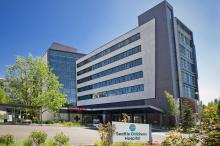
Seattle Children's Hospital is both a community hospital for greater Seattle and the pediatric referral center for the Northwest providing excellent pediatric care to meet the medical, surgical and developmental needs of children in the WWAMI region (Washington, Wyoming, Alaska, Montana, and Idaho). Serving as the main clinical training site for pediatric residents, this 423-bed hospital is conveniently located 1.5 miles from the University of Washington campus in a residential neighborhood of Seattle. The staff consists of University faculty and Seattle Children's full-time physicians.
Additional Information
University of Washington Medical Center (UWMC - Montlake)
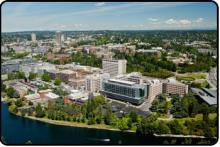
UWMC is a 450-bed teaching and research hospital offering comprehensive care including complete medical, surgical, ob-gyn, and psychiatric services and is rated as one of the top-10 hospitals in the U.S. Patients are referred from the UW Medicine sites and from community practitioners from the WWAMI region. The nearly 400 attending physicians on staff are full-time faculty members of the highly regarded UW School of Medicine.
The University of Washington Department of Medicine, Division of Gastroenterology, serves as an outstanding site for learning key concepts of adult gastroenterology and furthering procedural skills. Our fellows work alongside adult gastroenterology and hepatology providers, fellows of the UW GI fellowship program, and UW medical students. Due to the University's GI programs, the emphasis is on tertiary and quaternary care, and furthering procedural experience.
GI specific educational collaborations between our group at Seattle Children's and the UW GI groups include weekly lectures, GI Grand Rounds, Mortality and Morbidity, Journal Club, and multiple other educational opportunities.
Seattle Children's Research Institute (SCRI)

As one of the nation's top five pediatric research centers, Seattle Children's Research Institute is dedicated to providing hope, care and cures to help every child live the healthiest and most fulfilling life possible. With one million square feet of clinical, laboratory and office space, a workforce of over 2,400 people and over $253 million in total extramural funding for the 2023 fiscal year, we are working toward the next wave of lifesaving discoveries.
The research institute is organized into centers, specializing in areas that include immunotherapy, tissue and immune transplantation, outcomes research, clinical and translational research, and child health and behavior. Researchers work in close collaboration with one another, their colleagues at partner institutions including the University of Washington and Fred Hutch Cancer Center and our healthcare providers at Seattle Children's Hospital. This collaboration allows our faculty to draw on a variety of disciplines and techniques as they pursue solutions to some of medicine's most complex problems.
Fellowship Leadership
Nicole Pattamanuch, MD
Assistant Professor; Director, General Gastroenterology Assistant Director, Gastroenterology Fellowship Program
Established in 2008, the University of Washington program is distinguishing itself as producing leaders in Gastroenterology and Hepatology care, research, and education among academic pediatric Gastroenterology, Hepatology and Nutrition groups.
Current Fellows
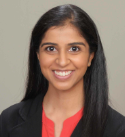 | Swetha Gogu, DO 1st Year Fellow |
 | Joanna Maliekel, MD 1st Year Fellow |
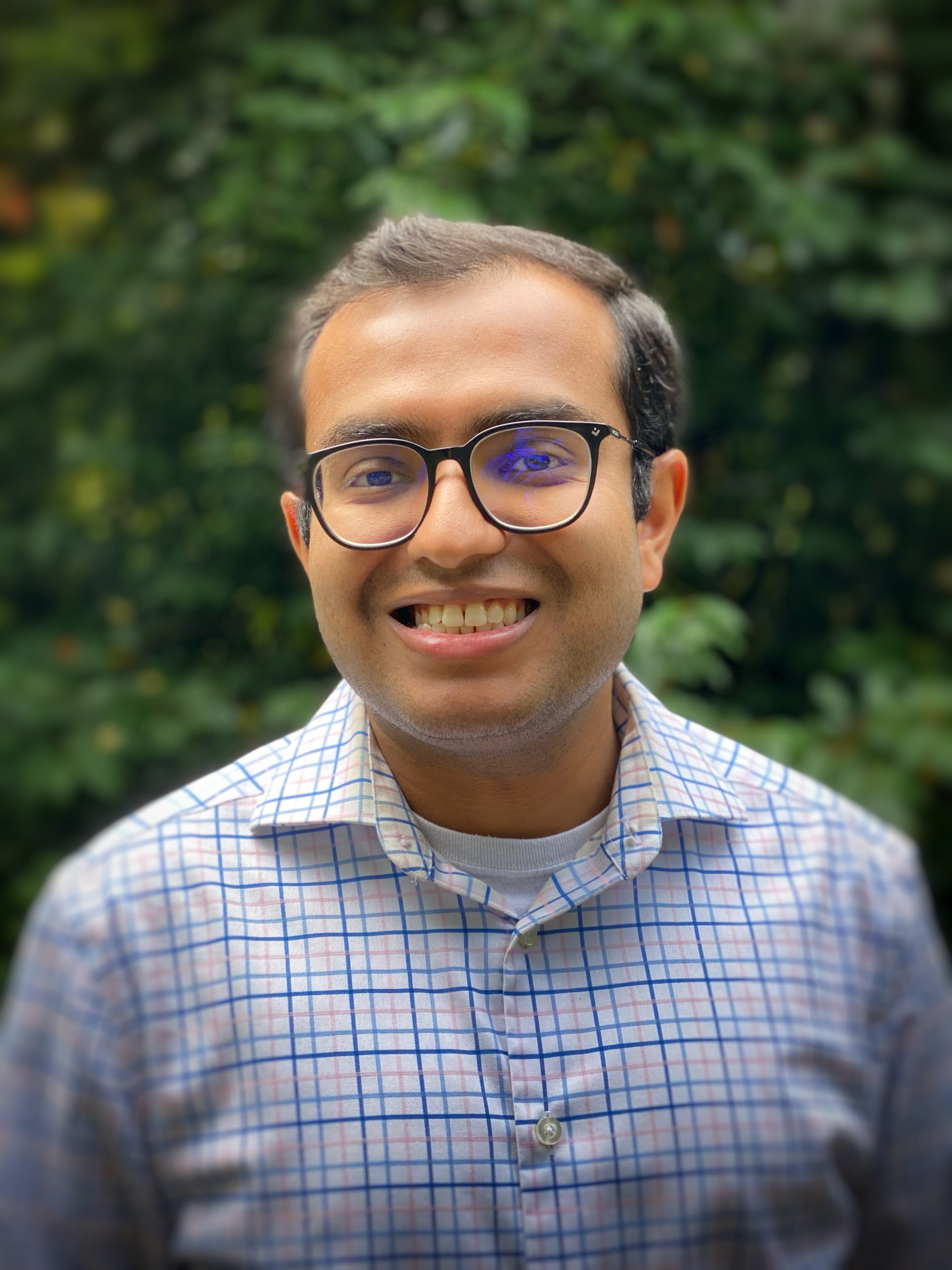 | Biren Desai, DO 3rd Year Fellow |
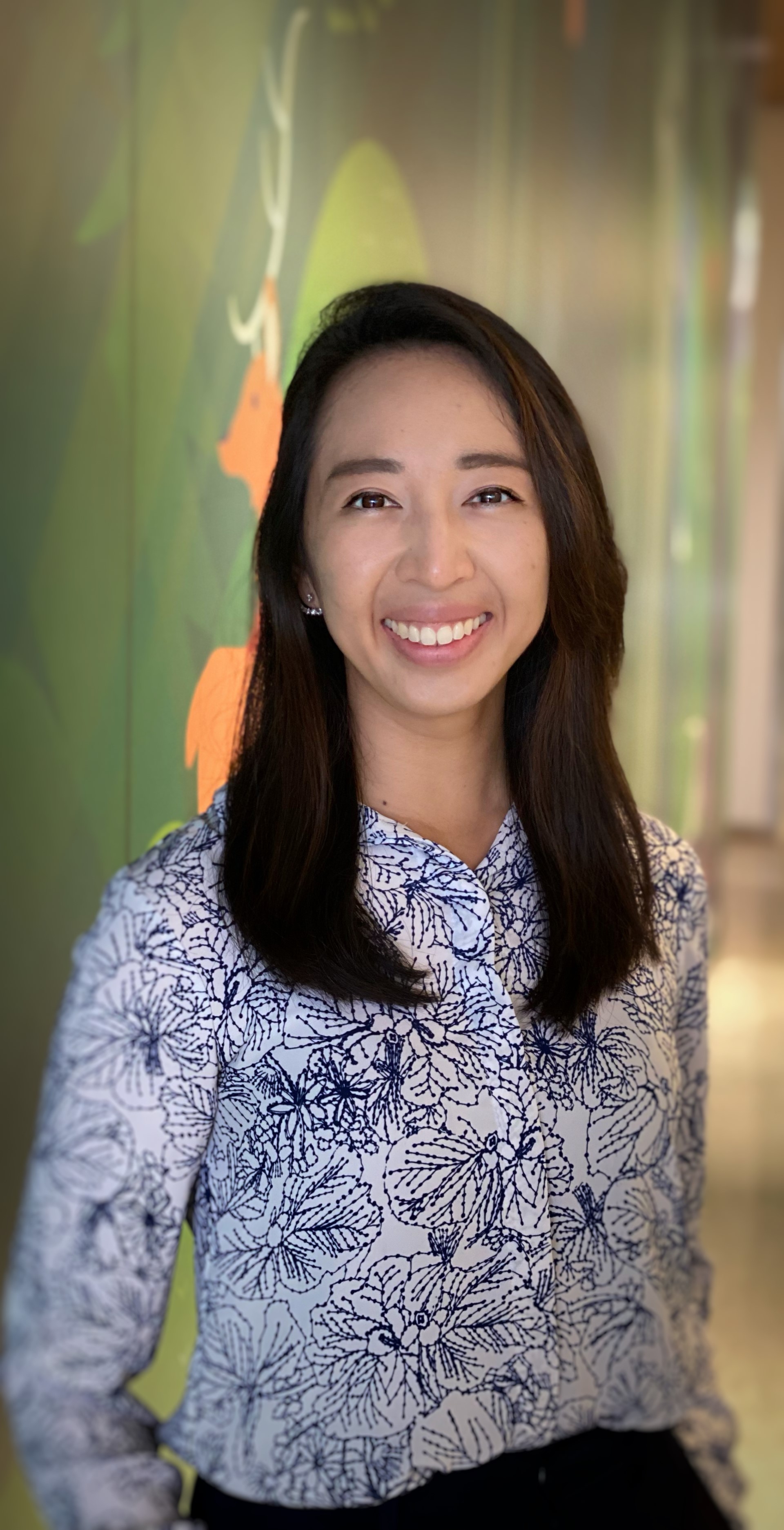 | Katelynn Ho, MD 3rd Year Fellow |
Recent Alumni
Maria Gonzalez Echeandia, MD (2022-2025)
St. Luke's Episcopal Hospital Ponce, Puerto Rico
Elizabeth Reznikov, DO, PhD (2022-2025)
Seattle Children's
Adaku Adebamiji, MD
Kathryn Stephenson, MD (2021-2024)
Pediatric Gastroenterologist, Kaiser Permanente Northern California
Jennifer Duong, MD (2020-2023)
UCSF Benioff Children's Hospital
Anne Levine, MD (2020-2023)
Medical Director, Pediatric Inflammatory Bowel Disease Program, SUNY Downstate
Kendra Francis (2019-2022)
Clinician Researcher, Seattle Children's
Irina Gorbounova (2019-2022)
Pediatric Gastroenterologist, Warren Alpert Medical School, Brown University
Tanyaporn (Katie) Kaenkumchorn, MD (2018-2021)
Pediatric Gastroenterologist, Children's Hospital Los Angeles
Tayla Miller, MD (2017-2020)
Pediatric Gastroenterologist, UNC Children's Hospital
Nicole Pattamanuch, MD
Assistant Professor; Director, General Gastroenterology Assistant Director, Gastroenterology Fellowship Program
EmailMonica Langsted
Fellowship Program Coordinator
Seattle Children's
PO Box 5371
M/S: OB 9.620
Seattle, WA 98145-5005












